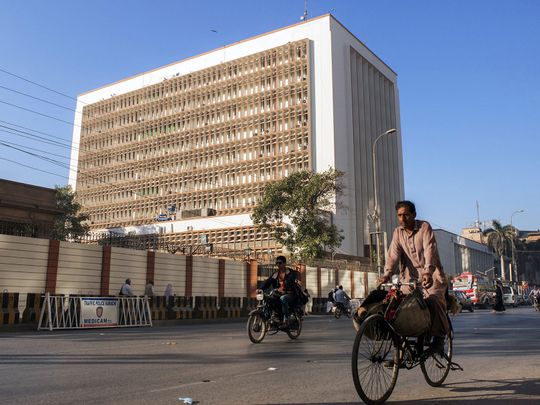
Islamabad: Pakistan’s ruling party Friday vowed to double healthcare spending as it unveiled a new budget which dramatically slashed other expenditure with the coronavirus pandemic wreaking havoc on the economy.
To a chorus of boos from the opposition, the government announced plans to cut the overall budget by 11 per cent compared with last year, as revenues dried up and deficits soared in the impoverished nation.
“We have prepared this budget keeping the coronavirus pandemic in mind,” said Hammad Azhar, the minister of planning and industries, during a speech to the lower house of parliament.
Pakistan’s economy was already on life support before officials began shuttering large segments of the economy in March as an array of lockdown measures were rolled out in effort to fight the spread of the coronavirus.
Deficits widened
The country has since called for debt forgiveness from international donors and the IMF as tax revenues cratered, inflation soared, the currency was devalued, and fiscal deficits widened.
“It is difficult to say anything with certainty about the coronavirus’s impact ... but there is no doubt that our GDP - which we thought could grow around 3 per cent - will now go down by around 0.4 per cent,” Azhar told parliamentarians.
Pakistan has struggled for decades to collect sufficient taxes, piling pressure on successive governments over the decades to provide ample funding for the country’s ailing healthcare and education sectors.
Estimates suggest that only around one per cent of the 200 million population filed a return in 2018.
The unveiling of the budget came just days after the World Health Organisation called on Pakistan to implement “intermittent” lockdowns to counter a surge in coronavirus infections that has come as the country loosened restrictions in recent weeks.
Prime Minister Imran Khan has repeatedly lambasted the lockdown measures, saying the moves are disproportionately hitting the poor who are unable to absorb the economic damage.
Hospitals across Pakistan, however, say they are at or near capacity, and some are turning COVID-19 patients away.








